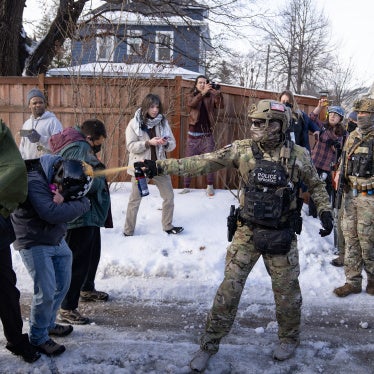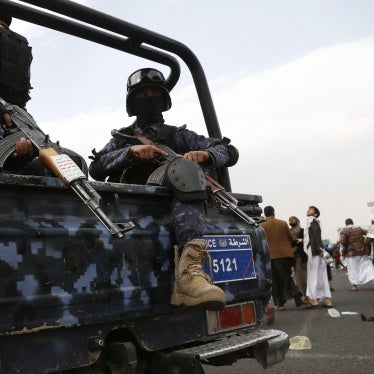The United States must provide full and frank answers to questions about its record on civil and political rights at next week’s U.N. Human Rights Committee hearing.
The Human Rights Committee is the U.N. body of experts responsible for monitoring countries’ compliance with the International Covenant on Civil and Political Rights (ICCPR), a human rights treaty ratified by the United States in 1992. The committee will question a U.S. delegation in Geneva on July 17 and 18 about U.S. compliance with its obligations under the covenant. The hearings will examine a U.S. report that was submitted by the government last October, more than seven years after it was due.
“This historic session is not just about holding the U.S. accountable for misconduct overseas but making sure it applies the same standards at home,” said Alison Parker, acting director of the U.S. Program at Human Rights Watch. “American children serving life without parole are entitled to fair trials and proportionate punishment, and so are those detained in Guantánamo.”
Human Rights Watch criticized shortcomings in Washington’s implementation of its human rights obligations. The U.S. has denied, for example, that the covenant applies to people it arrests overseas; it excuses certain abuses by claiming the federal government has little oversight over the conduct of the 50 U.S. states; and it claims certain forms of abusive treatment are necessary to wage the struggle against terrorism.
“Last week the U.S. Supreme Court rejected the Bush administration’s attempts to shield its actions from the law,” said Parker. “We believe the Human Rights Committee should do the same.”
At next week’s hearings, the 18 human rights experts who are members of the committee will have their first opportunity since 1994 to hold the U.S. to account for longstanding problems in the country’s domestic criminal justice system, and their first opportunity ever to examine the country's post 9-11 policies.
In the months leading up to the hearings, Human Rights Watch has presented evidence to the Committee on many subjects. Among these, Human Rights Watch highlights:
• The 2,225 American child offenders serving life sentences without the possibility of parole in U.S. prisons;
• Treatment of the thousands of detainees held by the U.S. in Guantánamo Bay, Iraq, and Afghanistan;
• Individuals returned to countries where they face risk of torture under the unreliable promise of diplomatic assurances; and
• Evidence on the use of lethal injections that cause unnecessary suffering to offenders executed in U.S. prisons.
Based on this evidence, the committee asked Human Rights Watch to respond to several questions as a part of its preparations for the hearings on July 17 and 18. Human Rights Watch urged the committee to:
• Require the U.S. to uphold its treaty obligations when it acts abroad as well as when it acts at home;
• Find the sentencing of child offenders to life without parole a violation of U.S. obligations to treat children fairly; and
• Question the U.S. practice of accepting unreliable diplomatic assurances from governments with records of human rights violations that they will not torture people returned to them by the United States.
“The U.S. government can't use the ‘war on terror’ or state criminal justice systems to hide its abusive behavior,” said Parker. “The United States is not above the law.”
Human Rights Watch’s Written submission to the Human Rights Committee in June
Human Rights Watch’s July response to questions asked by the Human Rights Committee
Human Rights Watch’s March statement to the Human Rights Committee
Human Rights Watch’s July statement to the Human Rights Committee








